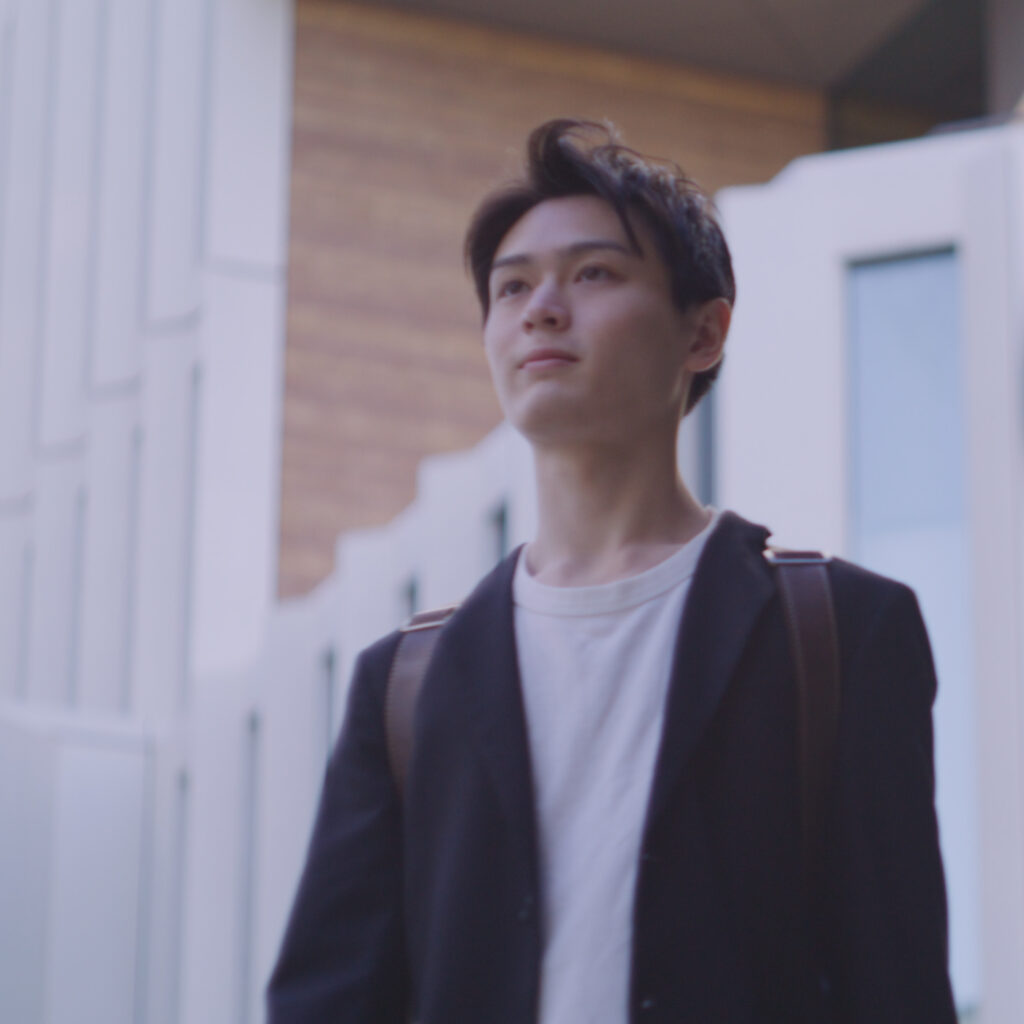When you pursue your own interests, unexpected discoveries await you

Koji Hara, a third-year student in the Department of Japanese Literature, says, “I want to be a person who always remembers to challenge myself.” Studying both written and spoken aspects of the Japanese language has led to a deeper understanding of Japanese literature, as well as the discovery of unexpected interests and new possibilities.
Studying Japanese literature was more enjoyable than I had imagined
I chose the Department of Japanese Literature at Sophia University simply because I was interested in language. Words more or less represent a person’s place of origin and background. Especially for the Japanese, our identities are tied to our mother tongue, which helps us to feel connected to our past. The more familiar we are, the stronger that connection is. It is precisely because globalization is advancing that I wanted to deepen my understanding of the Japanese language by studying the literature of my home country. For this purpose, entering the Department of Japanese Literature was the obvious choice.
I had the image that studying Japanese literature would be primarily comprised of reading novels and discussing the feelings and motivations of the characters within them. In actuality, our classes went much deeper than that, focusing on the value and significance of literary works based on historical background and political trends of the time. My view of a work changed completely when I approached it in this way, as I learned that it is necessary to not look at a piece of literature as an isolated event, but also to grasp how it was positioned within the overall historical climate, and to consider its relationship with other events. Through this kind of study, I believe I was able to acquire a bird’s-eye viewpoint.
As I continued to read texts in this way, I was able to use my skills of perception to uncover the hidden logic buried in the works. I was able to make my own discoveries about the works I was reading. It is really interesting when you discover that a seemingly benign work contains an antithesis to the political power of the time, or to make a new revelation in a major work that has already been widely studied.
Fusing Japanese literature and science to explore the hidden potential of speech

One of the classes in the Department of Japanese Literature that left a particularly strong impression on me was “Introduction to Japanese Language and Literature.” I had always assumed that the mainstay of Japanese literature was the written word, but the theme of the first class was the physical characteristics of sound. I was surprised by all the technical terms I had never heard of before, but I remember being excited to learn that in Sophia’s Japanese Literature Department, you could learn things that you might not associate with the word “literature.”
From there, I became interested in sound, and I am currently specializing in Japanese phonetics. This research involves recording actual speech sounds and analyzing their waveforms using special software. It’s fascinating because it has a scientific element, such as reading documents from the Heian and Muromachi periods and trying to infer the pronunciations of sounds and accents that are different from those of today, or analyzing recordings from the 1900s to look for similarities with modern speech.
Producing speech is one of the most basic human abilities, but it is naturally invisible. By using software to make it visible, we can make exciting discoveries, such as the fact that humans unconsciously have distinctive speech patterns. Considering that phonetics underlies the speech recognition functions in smartphones and other devices, I find this research very rewarding because it responds to the needs of modern society and has the potential to accelerate IT technology and digital transformation in Japan.
Acquiring the ability to express myself accurately by understanding the essence of language
I believe that studying in the Department of Japanese Literature is also linked to the improvement of communication skills. The essence of the department lies in the pursuit of language, so I naturally became sensitive to the words used by the people around me and myself, which has allowed me to develop a sense of self-awareness and my ability to communicate my intentions in proper Japanese.
In addition to my studies, I also work part-time as an instructor at a cram school, and I strongly believe in the importance of having the skills to express my thoughts and feelings accurately. These skills are important in both teaching in an easy-to-understand manner to students with different personalities and abilities, and in building trusting relationships with their parents.
My favorite book is “What Is Me: From ’Individual’ To ’Divisual’” (“Watashi Towa Nani Ka – ‘Kojin’ Kara ‘Bunjin’ E”) by Keiichiro Hirano. According to this book, humans are inconsistent and free creatures with unique personalities. Every time I read it, I am inspired to live more freely and escape from the shackles of the world. When I think about it, the Department of Japanese Literature at Sophia, which is free and unbounded by the restrictions of society, perfectly suits my nature. It is an environment where I can do whatever I want. Some students choose literary works as the theme for their seminars and graduation theses, while others use programming techniques to research texts. The choice is ours.
I am currently job hunting and am exploring my possibilities by consulting with the career center and my professors. Regardless of the career path I choose, I want to be a person who always remembers to challenge myself. I have always lived my life with the spirit of trying anything that interests me. Above all, I don’t want to do anything that will bore me, so even as I get older, I want to keep a positive spirit and never stop taking on new challenges.
※Please note that the content of this article is current as of November 2021